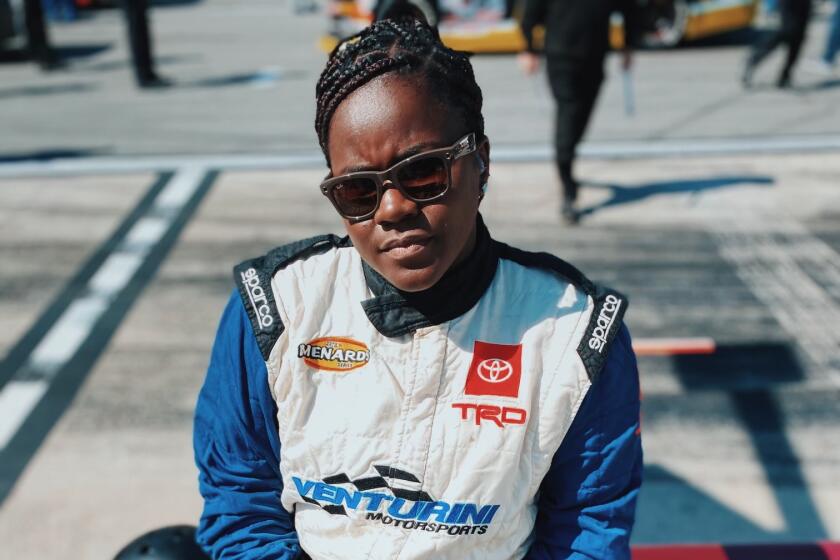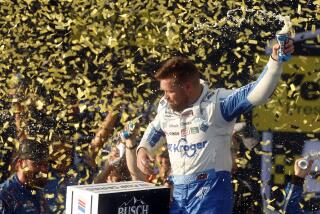Martin Truex Jr. prevails in caution-filled NASCAR spectacle at Coliseum
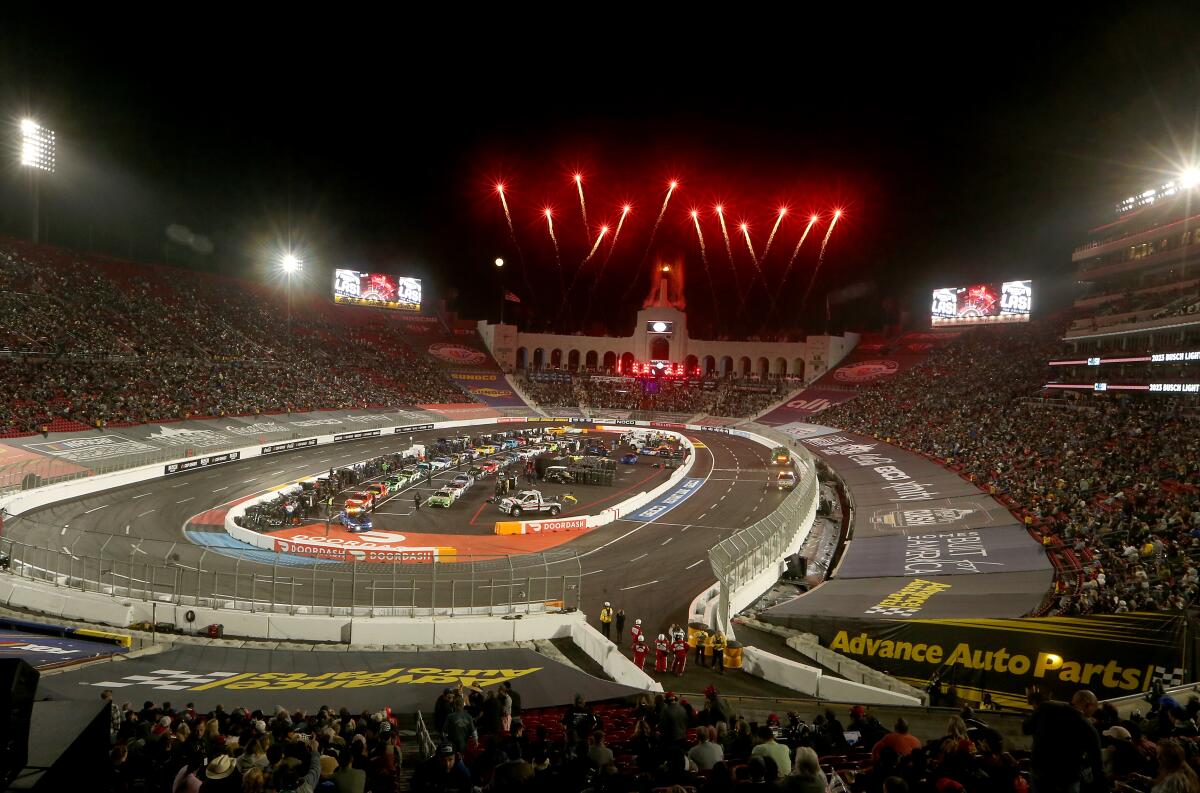
- Share via
Martin Truex Jr. needed a little more than two hours to weave through 37½ miles of traffic Sunday. Along the way, he endured tailgaters, slowed to avoid more than a dozen accidents and averaged just 64 mph, a speed that wouldn’t draw the attention of the most efficacious Highway Patrol officer.
That pretty much describes the morning commute for most people in Southern California. But Truex finished where he started, on the floor of the Coliseum, and when he climbed out of his car rather than arriving late for work with a headache, he was handed a trophy, a gold medal and a check for the winner’s share of a $2.085-million purse for NASCAR’s second Clash at the Coliseum.
“It was definitely satisfying. Anytime you win, it’s satisfying,” said Truex, who won for the first time since September 2021. “It’s just a good feeling to be able to win a race.”
Truex, who posted the fastest in Saturday’s qualifying and then won his heat race Sunday to start second in the final, bided his time in the main event, staying out of trouble and avoiding a number of accidents before taking the lead with 25 laps to go.
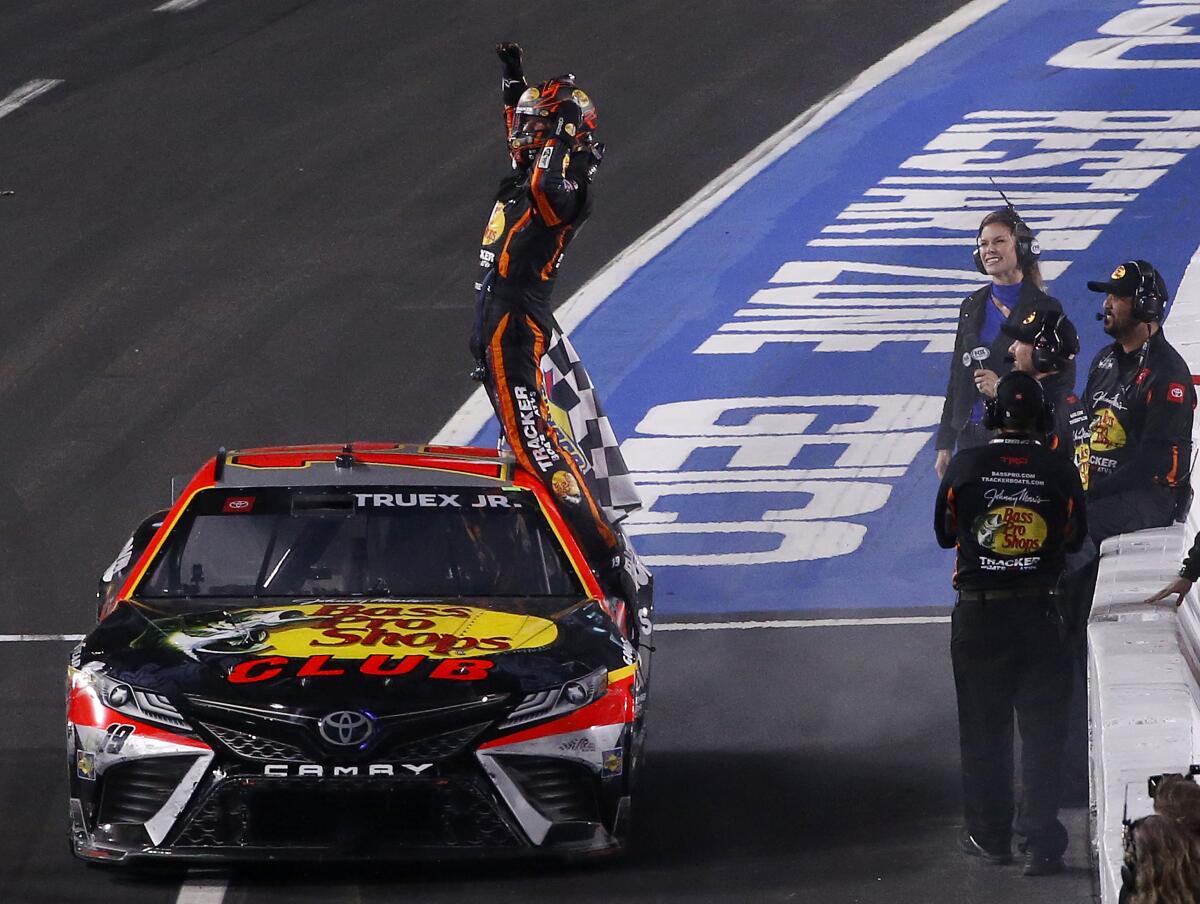
“That felt like a 400-mile race. It was forever. Caution, caution, caution,” he said.
“When you’re up front and you’re just kind of banging, guys are sliding into the corner, making mistakes and all that’s fun. It’s no fun when you just get run over and turned around. Luckily, we weren’t involved in that, [but] we had a few instances where it got close.”
Racing before a crowd of about 50,000, Truex took the lead from Ryan Preece and never gave it back, pulling away to win the season-opening exhibition to NASCAR’s 75th year. The dizzying 150-lap dash around a three-lane asphalt oval, the narrowest track in NASCAR, featured the yellow flag coming out 16 times for accidents and spin-outs.
NASCAR pit crews are being overhauled as more teams are turning to former college athletes to give teams an edge. The NASCAR race for diversity program has helped.
By the middle of the race, the Clash had become the crash.
If you like bumper-to-bumper traffic, slow-speed pursuits and a lot of accidents, the Coliseum event was a dream come true. What the race didn’t have, though, was long periods of green-flag racing.
“It was just bang, bang,” said runner-up Austin Dillon, who moved into second after spinning Bubba Wallace into the wall with eight laps to go. “I couldn’t believe how aggressive it was. There was nothing but just hammer each other and hope to come out the other side. I got hit one time, it knocked the wheel out of my hands.”
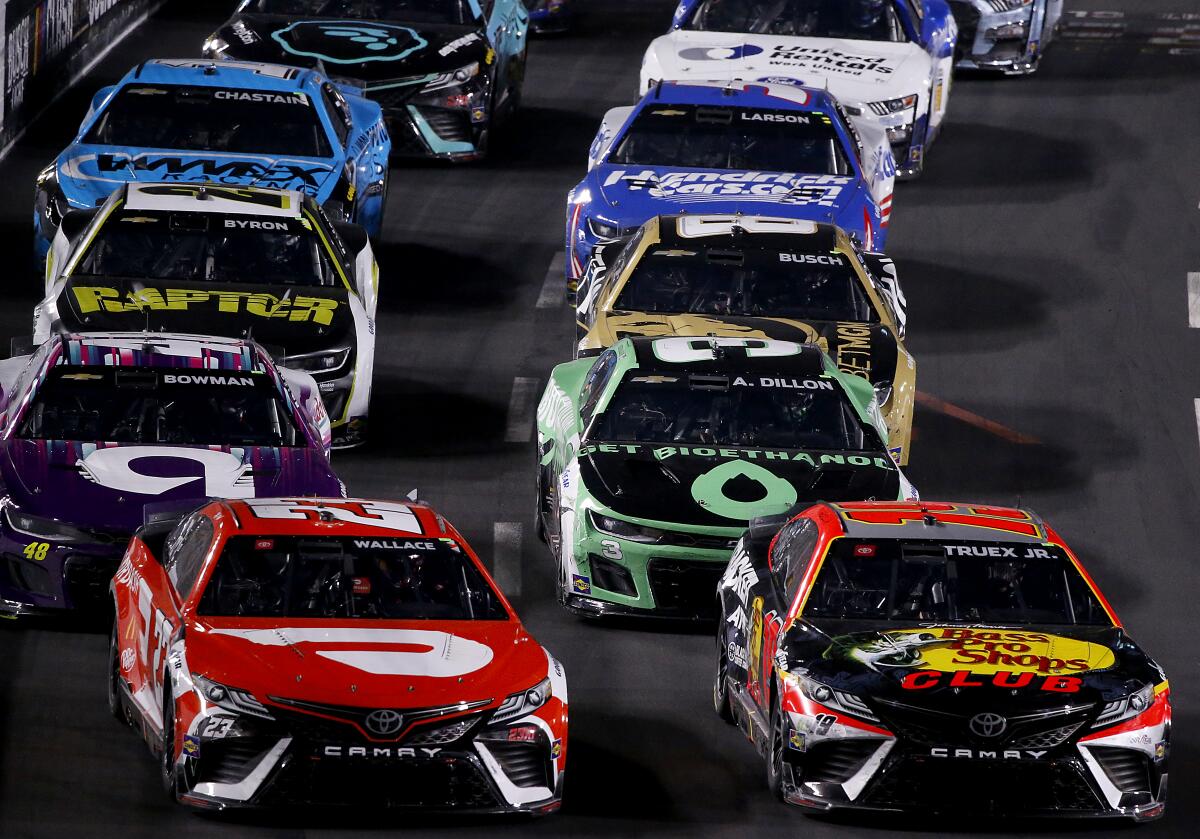
Added third-place finisher Kyle Busch, Dillon’s teammate with Richard Childress Racing: “I would call it a disaster with just the disrespect from everybody and just driving through each other and not just letting everything kind of work its way out. But I mean, it’s a quarter-mile. It’s tight-quarters racing.”
The iconic Coliseum, which will celebrate its 100th birthday in May, is no stranger to auto racing, having hosted events as early as 1945. But the Clash is a little different, with 27 3,500-pound cars pushing their way around a temporary track laid down over 130,000 square feet of plywood and plastic sheeting meant to protect the historic grass field. At a quarter-mile, the track is half the size of the next-smallest on the NASCAR circuit, while its 2.5-degree banking makes it the flattest track as well.
As a result, what started as a race, with long stretches running under a green flag through the first 74 laps, turned into a demolition derby in the second half, with accidents and spin-outs bringing out the caution flag six times over the next three miles. Last year’s race featured just five cautions in 150 laps. “It’s pretty bad when it takes 45 minutes to run six laps,” Alex Bowman, the fourth-place finisher, said. “Guys were just running over each other.”
Asked when he knew the race would be that way, Bowman chuckled. “When they built a track on a football field,” he said, adding: “Maybe it got a little out of hand.”
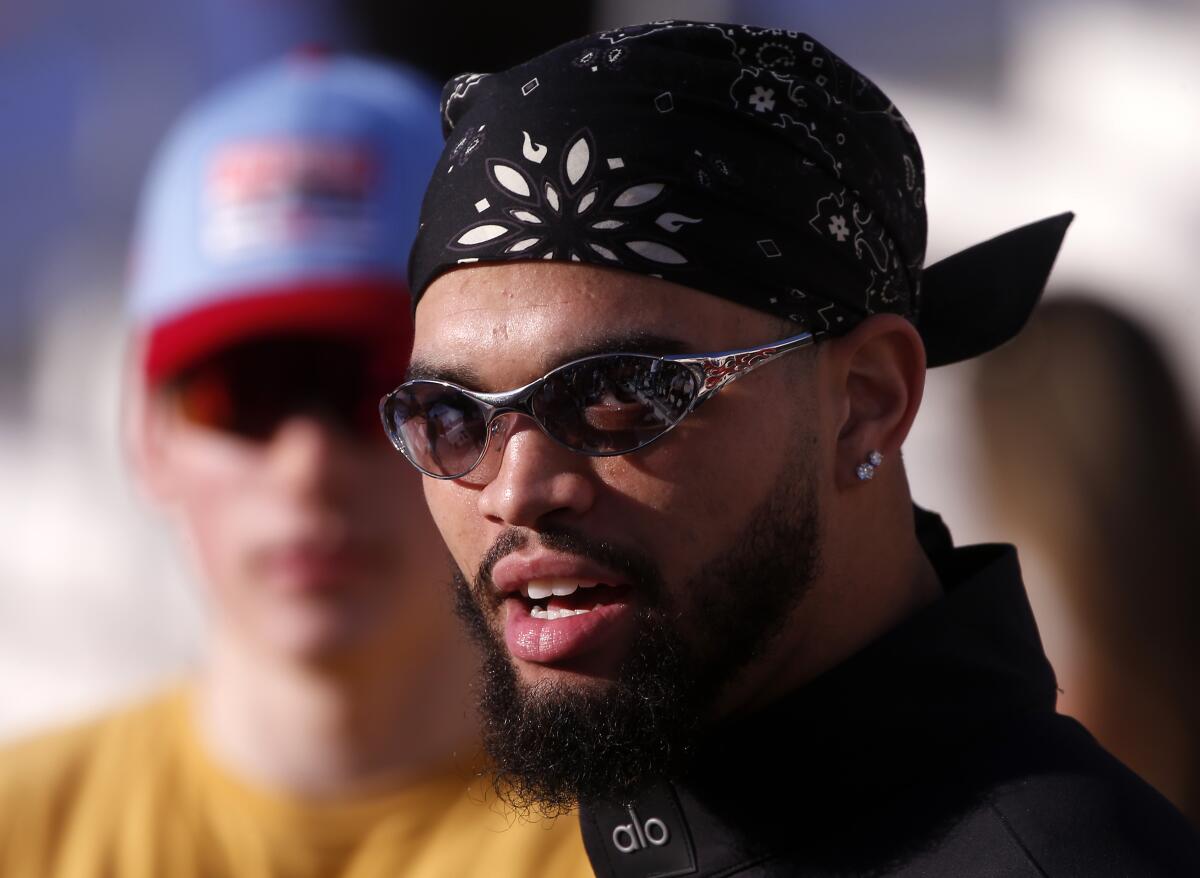
By the time Justin Haley, the fastest qualifier Saturday, spun out on Lap 106, a third of the 27 starters had been involved in some kind of mishap.
And the multiple yellow flags helped Preece, a short-track specialist, become the race’s fourth leader on Lap82. He stayed there through a number of restarts before Truex bumped Preece in the rear and went by 44laps later.
That was the fourth — and final — lead change of the night, with Truex enduring two more cautions in the final 14laps. Preece faded to seventh, while Wallace finished 22nd.

More to Read
Go beyond the scoreboard
Get the latest on L.A.'s teams in the daily Sports Report newsletter.
You may occasionally receive promotional content from the Los Angeles Times.

